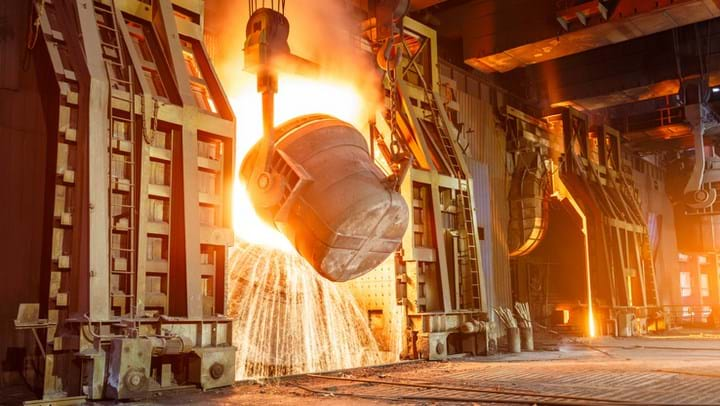New £20m facility to strengthen South Wales steel and metals industry

A NEW £20m (US$27.6m) facility has been launched in South Wales, which is expected to set the region up to build on its strength and expertise in steel and metals and help industry achieve a low carbon future.
Transitioning to net zero is essential for the manufacturing sector and will help protect the environment while developing industries and a workforce that are also vital to the South Wales economy.
The South Wales Industrial Transition from Carbon Hub (SWITCH) will allow academic researchers, industry, and government to collaborate to deliver practical solutions to decarbonise the steel and metals sector and supply chain. It will be led by the Neath Port Talbot Council and key partner Swansea University.
SWITCH will provide a purpose-built site and equipment for Swansea University to work with the steel and metals industry to:
- develop steel and metal manufacturing processes to reduce carbon emissions
- enable recovery and recycling of material and byproducts in manufacturing
- create advanced materials for construction, transport, and packaging sectors to support net zero solutions for society
The facility will offer the potential for innovation to strengthen regional decarbonisation activity as well as new business, investment, and job opportunities for a future green economy.
According to Swansea, steel and metals are at the heart of the south Wales community. By supporting the industrial transition to net zero, SWITCH is expected to play a vital role in achieving inclusive economic growth, enabling Welsh industry to remain globally competitive, and securing a long-term, sustainable future for the region.
SWITCH forms part of the £58.7m Supporting Innovation and Low Carbon Growth programme which is expected to support creation of a decarbonised and innovative economy. The programme is also expected to help establish the region as a leader in low carbon growth and green economy.
According to Edward Latham, Councillor and Neath Port Talbot Council Leader, the SWITCH hub complements the Neath Port Talbot Council’s Decarbonisation and Renewable Energy Strategy (DARE). The strategy lays out the Council’s overarching vision and objectives and what the Council has already achieved, and identifies future opportunities.
SWITCH will be located close to the Port Talbot steelworks and train station. It will be an open access facility.
Paul Boyle, Vice-Chancellor of Swansea University, said: “The SWITCH initiative will build upon our one-hundred-year history of purposeful collaboration with industry, to address the challenges of our time and deliver real innovation in Wales.”
Chris Williams, Head of Industrial Decarbonisation for Industry Wales, said: “South Wales is built on steel and metals. We have the people, expertise, and close collaborative relationships to lead the way to a net-zero carbon future for manufacturing industries across the globe.
“Industry has a vital role to play in a more sustainable future. In Wales we have established a strong collaborative approach to innovation. The SWITCH hub will build on this approach, bringing together expertise from industry, academia, and government to provide practical solutions for decarbonisation.
“The SWITCH hub will further boost our environmental drive here in Wales, by developing sustainable, competitive ways of manufacturing.”
Swansea University has been collaborating with industry since its foundation, and its support for UK steel industry goes back decades. Its work in the area includes opening the Steel and Metal Institute (SaMI) in collaboration with Tata Steek in 2018. and being part of the Strategic University Steel Technology and Innovation Network (SUSTAIN), which formed in 2019 with funding from the UK Engineering & Physical Sciences Research Council.
Recent Editions
Catch up on the latest news, views and jobs from The Chemical Engineer. Below are the four latest issues. View a wider selection of the archive from within the Magazine section of this site.




